Refresh
2024-12-11T21:39:01.449Z
The dust settles
One of the more interesting aspects of an outage like this, especially when it touches multiple services is how it can have a knock-on effect for seemingly unrelated platforms. When people can't get onto their favorite social media and encrypted communication platforms, they sometimes look for other places to blame.
Services like T-Mobile, AT&T, and Spectrum also got their share of outage reports in the same timeframe but it's unlikely they were either responsible or even impacted. It's just that when you can't reach Facebook, you start to wonder if your cellular or internet service is down. It's usually not.
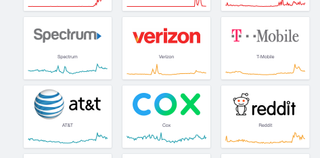
2024-12-11T21:11:34.863Z
A rough ride
WhatsApp may have had the roughest ride with two massive outage report spikes, as per Down Detector. It being a private messaging app, it's hard to know what people were experiencing or what they were saying (and not able to say) about the outage.
Based on the current chart WhatsApp also appears to be recovering.
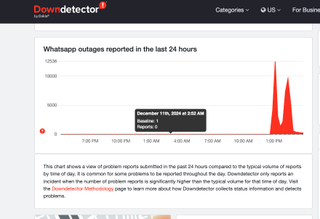
2024-12-11T21:06:10.863Z
The uncertainty of it all
This is the kind of platform outage that leaves you guessing. Systems work, but inconsistently. I was posting – I thought – but was pretty sure no one was seeing it. I finally posted a poll on Threads to see if the system was still out or if social engagement would continue.
With exactly two votes (at this writing) it's clear that not everything is working as it should.
Post by @lanceulanoff
View on Threads
2024-12-11T21:01:17.888Z
A recovery
By 3:58 PM ET, most of Meta's major services appeared to be recovering. Down Detector showed a significant downturn in outage reports
Instagram Notifications reappeared and Threads was, for the most part, accepting image uploads.
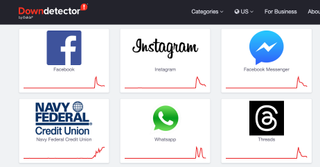
2024-12-11T20:57:21.404Z
How it started
We first noticed the outage on Threads where the platform began rejecting image uploads. Soon, the feeds started disappearing.
Subsequent checks of Instagram and Facebook showed similar instabilities.
In case you didn't know, Threads is owned by Instagram, which is also owned by Meta. The upstart social media platform has grown quickly over the last 16 months and has been remarkably stable. In recent months, its biggest challenge has come not from infrastructure but from Bluesky, which while slightly older than Threads recently rose to prominence during a mass exodus from X (formerly Twitter). For what it's worth, Bluesky and X appear unaffected by any larger Internet issues.

2024-12-11T20:49:17.094Z
AWS have a role here
As we mentioned, AWS, at least according to Down Detector, was also struggling in the early afternoon. Since we've heard whispers of other services outside the Meta's orbit also struggling, this might be a bigger issue than one company's servers. AWS serves countless websites and online services.
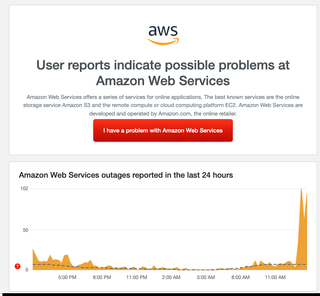

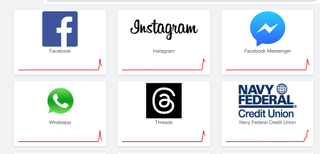








 English (US) ·
English (US) ·